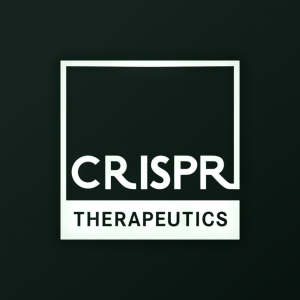CRISPR Therapeutics Announces Positive Phase 1 Clinical Data for CTX310® Demonstrating Deep and Durable ANGPTL3 Editing, Triglyceride and Lipid Lowering
Rhea-AI Summary
CRISPR Therapeutics (Nasdaq: CRSP) reported positive Phase 1 data for CTX310 on Nov 8, 2025, presented at AHA Scientific Sessions and published in NEJM. A single-course IV infusion produced dose-dependent, durable editing of ANGPTL3 with a mean reduction of -73% (max -89%). At the highest dose, mean triglycerides (TG) fell -55% (max -84%; mean -60% in patients with baseline TG >150 mg/dL) and mean LDL fell -49% (max -87%) by Day 60. CTX310 was generally well tolerated in 15 participants with no treatment-related serious adverse events and no ≥Grade 3 transaminase changes. CRISPR is advancing CTX310 into Phase 1b, prioritizing severe hypertriglyceridemia and mixed dyslipidemia.
Positive
- ANGPTL3 reduction mean -73% (maximum -89%)
- Triglycerides mean -55% at highest dose; -60% in baseline TG >150 mg/dL
- LDL mean -49% at highest dose (maximum -87%)
- Durable effect after a single-course IV infusion
- No treatment-related serious adverse events reported in 15 participants
Negative
- Small Phase 1 sample size of 15 participants
- Infusion-related reactions in 3 participants (all Grade 2)
- One allergic reaction and one Grade 2 transaminase rise (resolved by Day 14)
- 40% of participants on background PCSK9 inhibitors, which may affect LDL interpretation
Insights
Single IV course of CTX310 produced deep, dose‑dependent ANGPTL3, TG and LDL reductions with clean early safety, supporting further development.
CTX310 uses an LNP‑delivered CRISPR/Cas9 system to edit ANGPTL3 in hepatocytes and thereby reduce circulating ANGPTL3 protein, a regulator of triglycerides and LDL. The Phase 1 data show durable, dose‑dependent biology: mean ANGPTL3 down by
These findings demonstrate on‑target editing with meaningful biomarker effects after one infusion and an early tolerability profile without treatment‑related serious adverse events or Grade 3+ transaminase rises. Important dependencies remain: cohort sizes were small (15 participants with ≥28 days follow‑up for many endpoints), follow‑up beyond
Near‑term watch items include expansion cohort safety with longer follow‑up, confirmatory efficacy at therapeutic doses in the planned
-Data presented in a late-breaking presentation at the American Heart Association (AHA) Scientific Sessions 2025-
-Phase 1 clinical data for CTX310® demonstrate robust, dose-dependent reductions in circulating ANGPTL3 with a mean reduction from baseline of -
-Among participants with elevated baseline TG (>150 mg/dL), a mean reduction of
-CTX310 was well tolerated with no treatment-related serious adverse events and no ≥Grade 3 changes in liver transaminases-
-Findings simultaneously published in The New England Journal of Medicine entitled “First-in-Human Phase 1 Trial of CRISPR-Cas9 Gene Editing Targeting ANGPTL3”-
ZUG, Switzerland and BOSTON, Nov. 08, 2025 (GLOBE NEWSWIRE) -- CRISPR Therapeutics (Nasdaq: CRSP), a biopharmaceutical company focused on creating transformative gene-based medicines for serious diseases, today announced positive Phase 1 data from its ongoing clinical trial evaluating CTX310®, an investigational, in vivo CRISPR/Cas9 gene-editing therapy targeting ANGPTL3. A single-course treatment with CTX310 produced dose-dependent, durable reductions in circulating ANGPTL3 with a mean reduction from baseline of -
These data were presented today during a late-breaking session at the American Heart Association (AHA) Scientific Sessions and published simultaneously in The New England Journal of Medicine (NEJM) in a peer-reviewed article entitled “Phase 1 Trial of CRISPR-Cas9 Gene Editing Targeting ANGPTL3.”
"The publication and presentation of these Phase 1 results mark an important milestone for CRISPR Therapeutics and for the field of in vivo gene editing,” said Naimish Patel, M.D., Chief Medical Officer of CRISPR Therapeutics. “For the first time, we’ve shown that a single-course in vivo CRISPR treatment can safely and durably lower ANGPTL3, leading to clinically meaningful reductions in triglycerides and LDL. These data provide strong support for continued advancement of CTX310 and our broader cardiovascular gene-editing portfolio.”
“Seeing a single-course treatment safely lower both LDL cholesterol and triglycerides is truly unprecedented,” said Stephen J. Nicholls, lead study investigator and director of the Victorian Heart Institute at Monash University. “If these findings are confirmed in larger studies, a one-time therapy could redefine how we manage lifelong lipid disorders and help prevent cardiovascular disease.”
“Adherence to cholesterol-lowering therapy remains a major challenge in treating patients with heart disease,” said Steven E. Nissen, M.D., senior author of the study and Chief Academic Officer at the Cleveland Clinic Heart, Vascular and Thoracic Institute. “Many patients discontinue therapy within the first year. The prospect of a one-time treatment with durable effects would be a major advance in cardiovascular prevention.”
CTX310
CTX310 is an investigational, lipid nanoparticle (LNP) delivered CRISPR/Cas9 therapy designed to precisely edit the ANGPTL3 gene in hepatocytes following a single-course IV administration. ANGPTL3 encodes a key protein that regulates TG and LDL levels, both well-established risk factors for atherosclerotic cardiovascular disease (ASCVD). Individuals with naturally occurring loss-of-function mutations in ANGPLT3 have lower TG, lower LDL and a reduced lifetime risk of cardiovascular disease compared to those without such mutations. By reducing ANGPTL3 expression, CTX310 has the potential to durably lower TG and LDL cholesterol in patients with severe or refractory dyslipidemia. More than 40 million people in the United States have elevated TG, elevated LDL, or both, underscoring the significant unmet medical need. CTX310 is initially being developed for patients at highest cardiovascular risk who have limited effective treatment options despite current lipid-lowering therapies.
Phase 1 Clinical Trial Design
The Phase 1, open label, dose-escalation trial evaluated single-course IV doses of CTX310 ranging from 0.1 to 0.8 mg/kg (lean body weight) targeting ANGPTL3 in four patient groups: homozygous familial hypercholesterolemia (HoFH), severe hypertriglyceridemia (sHTG), heterozygous familial hypercholesterolemia (HeFH), or mixed dyslipidemias (elevated TG and LDL). Eligible participants had uncontrolled TG levels >150 mg/dL and/or LDL cholesterol >100 mg/dL (or >70 mg/dL for those with established ASCVD) despite background standard of care per local guidelines.
The majority of participants were receiving statins and/or ezetimibe, while
Safety and Tolerability
Single-course ascending doses of CTX310 were administered to 15 participants across sequential cohorts, and all participants completed at least 28 days of follow-up as of the data cutoff. CTX310 was generally well tolerated, and no dose-limiting toxicities or serious adverse events related to treatment.
Adverse events were generally mild to moderate. One participant experienced an allergic reaction that resolved the following day with supportive care. Infusion-related reactions occurred in three participants (two at 0.6 mg/kg and one at 0.8 mg/kg dose), all Grade 2. All events resolved, and all participants completed their infusions. One participant with elevated transaminases level at baseline had a Grade 2 elevation of transaminases that peaked by Day 4 and resolved completely by Day 14 without any rise in bilirubin.
Overall, CTX310 demonstrated a well-tolerated safety and tolerability profile that supports continued advancement of the program.
Efficacy Highlights
These new results build upon previously disclosed top-line data from 12 participants across the first four sequential cohorts, corresponding to lean body weight-based doses of DL1 [0.1 mg/kg], DL2 [0.3 mg/kg], DL3 [0.6 mg/kg] and DL4 [0.8 mg/kg]. All participants had at least 30 days of follow-up.
- Dose-dependent reductions in circulating ANGPTL3 protein: Mean (range) among participants treated with 0.1, 0.3, 0.6, 0.7, and 0.8 mg/kg doses were
10% (-22 to 71),9% (-25 to 64), -33% (-51 to -19), -80% (-87 to -73), and -73% (-89 to -67), respectively, at Day 30 following CTX310 infusion. - Among participants treated at 0.8 mg/kg, TG reductions of up to
84% were observed, with a mean reduction of55% at Day 60 following CTX310 infusion. - In participants with elevated TG (>150 mg/dL) at baseline, mean reductions of
60% were observed at the therapeutic dose levels at Day 60 following CTX310 infusion. - Among participants treated at 0.8 mg/kg, LDL reductions of up to
87% were observed, with a mean reduction of49% at Day 60 following CTX310 infusion. - Two participants on background PCSK9 inhibitors achieved >
80% reduction in LDL from baseline.
Next Steps
Results from the Phase 1 clinical trial highlight the potential of CTX310 to safely and durably lower both TG and LDL following a single-course IV administration. These findings underscore its promise as a potentially transformative treatment approach for patients with severe or refractory dyslipidemia. CRISPR Therapeutics is advancing CTX310 into Phase 1b clinical trials, prioritizing development in sHTG and mixed dyslipidemia.
About In Vivo Programs
CRISPR Therapeutics has established a proprietary lipid nanoparticle (LNP) delivery platform to enable gene editing in the liver using both CRISPR/Cas9 and its novel, proprietary SyNTase™ editing technologies. The Company’s in vivo portfolio includes its lead investigational programs, CTX310 (directed towards angiopoietin-related protein 3 (ANGPTL3)) and CTX320™ (directed towards LPA, the gene encoding apolipoprotein(a) (apo(a)), a major component of lipoprotein(a) [Lp(a)]). Both are validated therapeutic targets for cardiovascular disease. CTX310 and CTX320 are in ongoing clinical trials in patients with heterozygous familial hypercholesterolemia, homozygous familial hypercholesterolemia, mixed dyslipidemias, or severe hypertriglyceridemia, and in patients with elevated lipoprotein(a), respectively. In addition, the Company’s research and preclinical development candidates include: CTX460™, targeting SERPINA1 for the treatment of alpha-1 antitrypsin deficiency (AATD); CTX340™, targeting AGT for the treatment of refractory hypertension; and CTX450™, targeting ALAS1 for the treatment of acute hepatic porphyria (AHP).
About CRISPR Therapeutics
Founded over a decade ago, CRISPR Therapeutics is a leading gene editing company focused on developing transformative medicines for serious diseases. The Company has evolved from a pioneering research-stage organization into an industry leader, marking a historic milestone with the approval of CASGEVY® (exagamglogene autotemcel [exa-cel]), the world’s first CRISPR-based therapy, approved for eligible patients with sickle cell disease and transfusion-dependent beta thalassemia. CRISPR Therapeutics is advancing a broad and diversified pipeline across hemoglobinopathies, oncology, regenerative medicine, cardiovascular and autoimmune, and rare diseases. The Company continues to expand its leadership in gene editing through the development of SyNTase™ editing, a novel and proprietary gene-editing platform designed to enable precise, efficient, and scalable gene correction. To accelerate and expand its impact, CRISPR Therapeutics has established strategic collaborations with leading biopharmaceutical partners, including Vertex Pharmaceuticals. CRISPR Therapeutics AG is headquartered in Zug, Switzerland, with its wholly-owned U.S. subsidiary, CRISPR Therapeutics, Inc., and R&D operations based in Boston, Massachusetts and San Francisco, California. To learn more, visit www.crisprtx.com.
CRISPR THERAPEUTICS® standard character mark and design logo, SyNTase™, CTX310®, CTX320™, CTX340™, CTX450™ and CTX460™ are trademarks and registered trademarks of CRISPR Therapeutics AG. CASGEVY® and the CASGEVY logo are registered trademarks of Vertex Pharmaceuticals Incorporated. All other trademarks and registered trademarks are the property of their respective owners.
CRISPR Therapeutics Forward-Looking Statement
Statements contained in this press release regarding matters that are not historical facts are “forward-looking statements” within the meaning of the Private Securities Litigation Reform Act of 1995. Because such statements are subject to risks and uncertainties, actual results may differ materially from those expressed or implied by such forward-looking statements. Such statements include, but are not limited to, statements made by Drs. Nicholls, Nissen and Patel in this press release as well as statements regarding any or all of the following: (i) CRISPR Therapeutics preclinical studies, clinical trials and pipeline products and programs, including, without limitation, manufacturing capabilities, status of such studies and trials, potential expansion into new indications and expectations regarding data, safety and efficacy generally; (ii) data included in the above-described oral presentation and any associated abstracts or posters, data included in the above-described article in The New England Journal of Medicine as well as the ability to use data from ongoing and planned clinical trials for the design and initiation of further clinical trials; and (iii) the therapeutic value, development, and commercial potential of gene editing technologies and therapies, including CRISPR/Cas9 and SyNTase, as well as other technologies. Risks that contribute to the uncertain nature of the forward-looking statements include, without limitation, the risks and uncertainties discussed under the heading “Risk Factors” in CRISPR Therapeutics most recent annual report on Form 10-K and in any other subsequent filings made by CRISPR Therapeutics with the U.S. Securities and Exchange Commission. Existing and prospective investors are cautioned not to place undue reliance on these forward-looking statements, which speak only as of the date they are made. We disclaim any obligation or undertaking to update or revise any forward-looking statements contained in this press release, other than to the extent required by law.
Investor Contact:
+1-617-307-7503
ir@crisprtx.com
Media Contact:
+1-617-315-4493
media@crisprtx.com








